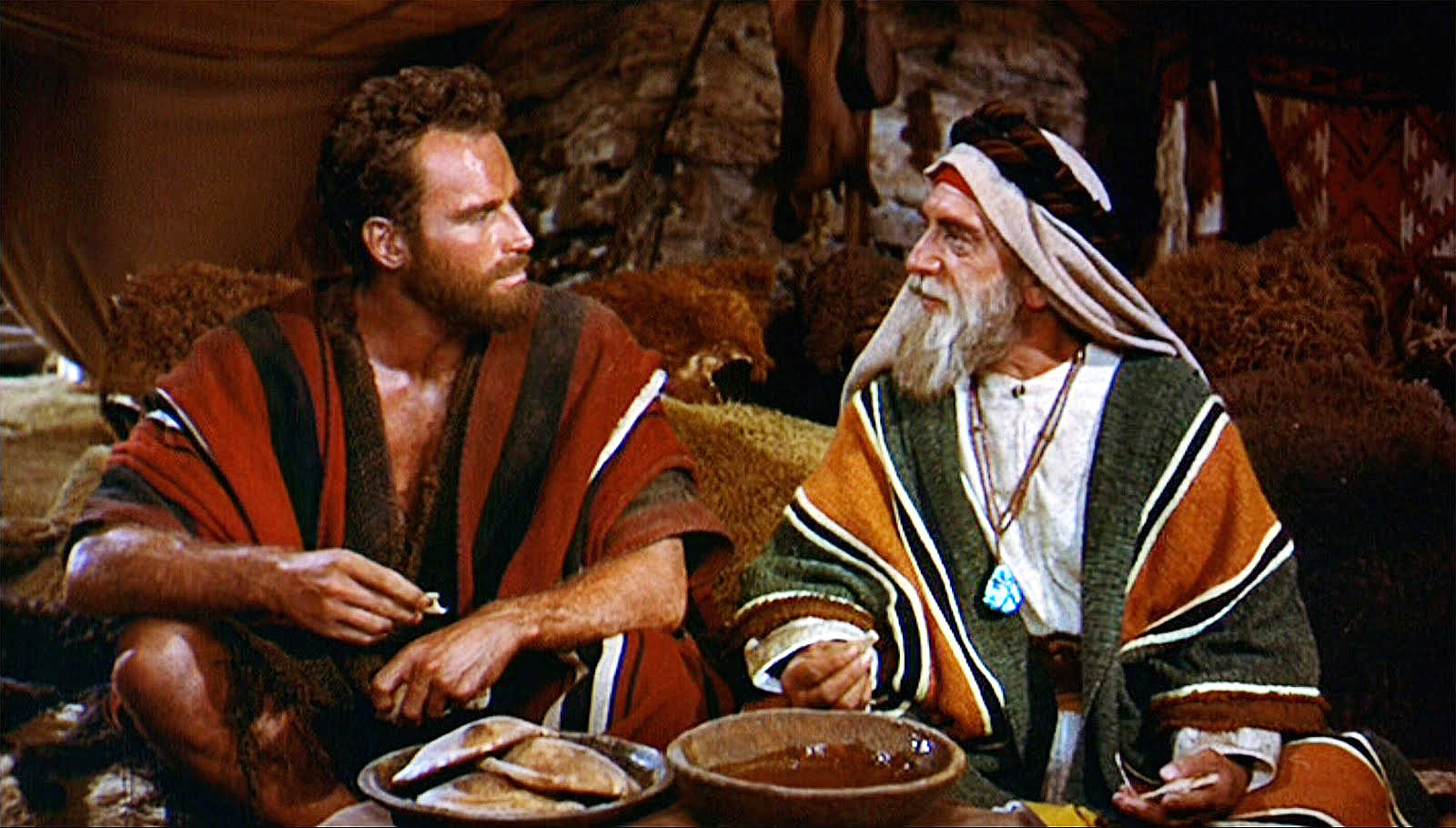Jethro, Moses' Father-in-law (18:1-27)
The father-in-law of Moses goes by several names: Reuel in 2:16-22; Jether in 4:18; Jethro in 3:1; and Hobab in Nu 10:29. Moses had lived with his father-in-law as a shepherd (3:1). In Ex 3 he is called by God to return to Egypt. Although 4:19-20 makes it appear that Moses took his wife and two sons with him when he returned to Egypt, we learn from this passage that Moses had returned them to his father-in-law before going back to Egypt. Perhaps the purpose of the mysterious narrative in 4:24-26 is intended to give some motivation for the return of Moses' wife and family to Jethro.

The present narrative has many parallels with the account of Abraham's meeting with Melchizedek in Ge 14. Just as Melchizedek, the priest of Salem, met Abraham bearing gifts as he returned from battle (Ge 14:18ff.), so Jethro, the Midianite priest, came out with Moses's wife and sons to offer peace as Moses returned from the battle with the Amalekites. Melchizedek praised God for his rescue of Abraham from his enemies saying, “Blessed be Abram by God Most High . . . who delivered your enemies into your hand” (Ge 14:19), just as Jethro praised God saying “Blessed be the LORD, who rescued you from the hand of the Egyptians. . . . The LORD is greater than all other gods” (Ex 18:10). Melchizedek brought out bread and wine as a priest of God Most High and Abraham tithed to him (Ge 14:18ff.), and Jethro brought out a burnt offering and other sacrifices and ate bread with Moses and Aaron.
The purpose of such parallels appears to be to cast Jethro as another Melchizedek, the paradigm of the righteous Gentile. It is important that Jethro have such credentials because he plays a major role in this chapter, instructing Moses, the lawgiver himself, how to carry out the administration of God's law with Israel. Thus, just as Abraham was met by Melchizedek the priest (Ge 14), before God made a covenant with him in Ge 15, so Moses was met by Jethro, the priest (Ex 18), before God made a covenant with him at Sinai (Ex 19ff.).
Sailhamer, John (1994) NIV Compact Commentary (pp. 85-86) Grand Rapids, MI: Zondervan.

Comments